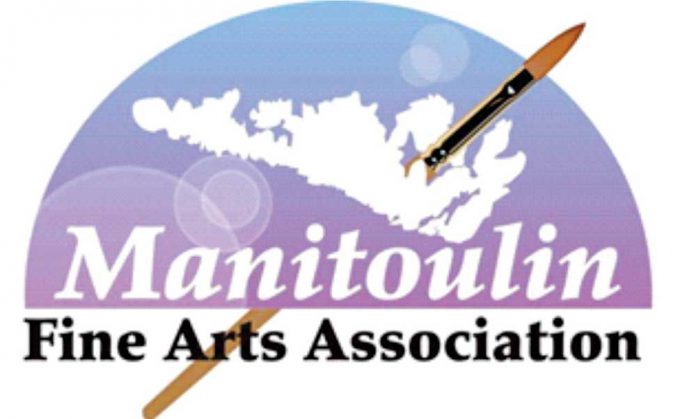EDITOR’S NOTE: From now until June 6, the day before the Ontario election, this newspaper will pose questions––meaningful to the people of Manitoulin Island––to the six candidates in the riding of Algoma-Manitoulin. Their responses will follow each and every week on Page 3 of this newspaper.
The stewardship of the Great Lakes reserve of an identifiable percentage of all the world’s fresh water supplies lies within the surrounding jurisdictions: two of which are in Canada and Ontario is one of these two; our southern coastline follows all the lakes, save Lake Michigan.
There is increasing pressure from the US industrial heartland to divert water from the Great Lakes basin and pump it across the height of land and away from the Great Lakes watershed.
There have been two recent examples, both in Wisconsin, where the Great Lakes-St. Lawrence River Basin Water Resources Compact has been tested with the result that water has been diverted away from the Great Lakes basin.
Does your party consider these test cases precursors to much larger diversions to increasingly arid areas of the United States?
If it does, what steps would it take to mitigate water taking at increased levels?
If it does not, why not?
Michael Mantha, New Democratic Party

Canada’s heritage and incredible success as a world nation was built upon the importance of the Great Lakes and the St. Lawrence River. And its importance continues today. It is an integral part of our economy, and a major source of our drinking water. Diverting water from the Great Lakes basin is a bad idea.
Much of Algoma-Manitoulin is bounded by two of the Great Lakes. While this is certainly a privilege, it also comes with the incredible responsibility of keeping them healthy and beautiful. Every time I go on Manitoulin Island, I am reminded of how much water is a part of the lifestyle here in our riding.
These lakes provide drinking water for tens of millions of people in hundreds of communities. On top of that, the health of the lakes impacts on a great many jobs. These aren’t only resource-based jobs such as commercial fishing, there are consumer and manufacturing jobs that rely heavily on tourism and shipping in clean and plentiful waters. It is only logical for governments within Great Lake jurisdictions to do all they can to protect the Lakes.
Here in Algoma-Manitoulin we have experienced first-hand in recent years the trouble that fluctuating water levels can create for communities around the Great Lakes. Infrastructure challenges grow as water is depleted. Drinking water intake pipes can freeze when they are closer to the surface and docking facilities can become difficult to navigate or even unsuitable and unsafe. Remember how challenges related to docking the Chi-Cheemaun ferry threatened to halt that service and throw a multi-million dollar monkey wrench into the tourist economy on Manitoulin Island, the North Shore of Lake Huron and the Bruce Peninsula? With challenges like that coming from climatic conditions, we can ill-afford to watch as Great Lakes water disappears through careless diversion—forever.
During my last term as your representative, I wrote twice to the premier about this particular situation. I also wrote to municipalities and First Nations to express my concerns about those diversion projects.
Indigenous peoples have been very critical of such water diversion from communities in the United States. We have to remind ourselves that water is life, and that it should always be protected.
What is required now is a strong statement from Canada and Ontario. It is time to bear the fruit of our good relationship with our American neighbours and double down on joint-protection for the Great Lakes. Anything less will amount to a careless refusal to see the danger for what it is and an abandonment of our duty to protect the lakes for future generations.
That is why an NDP government will stand up for protecting our waters. Not only that, but we will create a provincial food and water strategy. We will also ensure every Ontarian, including those in Indigenous communities, has safe, reliable drinking water.
The Ontario NDP and I will always fight for protecting water. A Change for the Better will be an NDP government that will stand up for what’s right.
Justin Tilson, Green Party

The Green Party platform on the Great Lakes has been in place for many years now, and we add to it as members bring new policy ideas forward. If this issue, or others like it, are dear to your heart, please consider joining the Green Wave.
Our policy states “the Green Party of Ontario will work with the Federal government and International Joint Commission to bring a coherent vision for the Great Lakes and Great Lakes Water Basin by implementing comprehensive policies and targeting investments that address invasive species, climate change mitigation and adaptation, reduce chemical and biological waste discharge, while enhancing drinking water protection, cleaning contaminated sites and emphasizing water conservation.”
The International Joint Commission is comprised of Canadian and US members and is responsible for regulating shared water uses, investigating transboundary issues and recommending solutions. The IJC is guided by the Boundary Waters Treaty. Article III of the Boundaries Water Treaty states that:
It is agreed that, in addition to the uses, obstructions, and diversions heretofore permitted or hereafter provided for by special agreement between the Parties hereto, no further or other uses or obstructions or diversions, whether temporary or permanent, of boundary waters on either side of the line, affecting the natural level or flow of boundary waters on the other side of the line shall be made except by authority of the United States or the Dominion of Canada within their respective jurisdictions and with the approval, as hereinafter provided, of a joint commission, to be known as the International Joint Commission.
Given the petulant tone and fervent chants for “America First” that we regularly hear from South of the border, it is safe to assume that recent diversion projects may very well be a test of Canada’s willingness to stick up for itself as a partner in the IJC. Green MPPs will fight fiercely to defend Ontario’s interests in protecting the Great Lakes while looking for ways to strengthen the co-operative foundation of the IJC. Since this is a federal issue we will have to look for ways to support work at that level while fueling grassroots pressure to keep government players accountable.
Diversion projects are only one aspect of managing our water resources for the long term. Only the Green MPPs would set stringent targets for keeping pollutants out of our water systems. We have well-developed policy ready to be implemented at Queen’s Park. While your Green MPPs will set goals and targets, we will empower local municipalities and First Nations partners to monitor and enforce these targets.
We would like to thank Therese Trainor, and others, for their Letters to the Editor concerning Enbridge Line 5 and the potential for an oil spill catastrophe in our waters. Our local Green Constituency Association has been looking for one key issue to take up and work on post-election, and this is it. If you would like to join us in taking focused interventions, please contact us through the GPO website. You don’t need to be a Member to get involved.
Jib Turner, Progressive Conservative Party

There is a reason the Ontario PC logo encompasses a leaf—because I along with the Ontario PCs all believe the environment is the economy.
The lifeblood of majestic Algoma-Manitoulin has been, and continues to be, its strategic location along the shores of the Great Lakes.
It is the only riding in Ontario to cross both Lake Superior and Lake Huron-Michigan (geologically one lake) and provides some of the most spectacular scenery, anywhere. In fact, I am writing this while at Lake Superior Provincial Park, where my team stops each time to recharge after our trips to the northern part of the riding.
The Great Lakes not only makes our scenery in Algoma-Manitoulin majestic, but also plays an important and vital role in our economy. Ever since I was young, I had an affinity for the water—and throughout my life, I have been, and remain, staunchly committed to developing the tourism economy in our area.
In many ways, the environment is the economy.
Hence, I believe firmly that we all have an important role to play in protecting the Great Lakes and our natural environment. I am very proud of the Ontario PCs commitment to investing $500 million over four years in doing so.
The issue in this week’s question is an important case study revealing the complexity of protecting our environment. Indeed, the two cases in Wisconsin set a precedent, and ensure that we must continue to place fact-based scientific evidence and research, at the heart of our decision-making to protect our environment.
We all have an important role to play in protecting the Great Lakes and our environment. To keep Algoma-Manitoulin beautiful, I along with the Ontario PCs, will invest in protecting and preserving waterways.
We are equally committed to ensuring that we will pass on a cleaner world for further generations, in all aspects.
Some environmental initiatives include supporting and enforcing our air quality programs, improving enforcement by hiring more Conservation Officers and increasing policing of major polluters. We will establish an emissions-reduction fund to invest in new technologies and reduce emissions. Furthermore, we are dedicated to keeping our communities clean by committing resources to reduce garbage in neighbourhoods and parks.
This will mean the Ontario PCs, will invest over $500 million in preserving our environment for future generations.
Let’s ensure that we can continue to have the Great Lakes clean for future generations to enjoy. Let’s support the Great Lakes and the important environmental and economic roles in which they plan.
On June 7, I look forward to your vote to continue keeping Algoma-Manitoulin one of the cleanest places on earth!
Tommy Lee, Northern Ontario Party

The Northern Ontario Party realizes that Ontarians have a great responsibility (along with our American neighbours) as stewards of the largest bodies of fresh water in the world!
This is not to be taken lightly. We must find a balance that works well for our two countries from an environmental, agricultural, and an industrial perspective.
One important factor to consider is the International Joint Commission’s Plan 2014. This “plan” replaced a lake level management plan that had been in effect since 1958, and it has been blamed for excessively high lake levels in Lake Ontario. To simplify things, the Great Lakes are sort of like a series of buckets, one flowing into the next once they reach their optimum level. As long as water is flowing into bucket No.1, it will continue to flow into bucket No.2 and so on. Bucket No.5 (otherwise known as Lake Ontario) flows into the St. Lawrence river, which ultimately flows into the salt water of the ocean.
By measuring the outflow of Lake Ontario as well as the surface levels of each Great Lake we can begin to understand how much water can be diverted before encountering negative effects. So far in 2018 the average outflow of Lake Ontario is well above average as is the surface level of all of the Great Lakes. It stands to reason that a great deal of water could be diverted while potentially providing some relief to Toronto and even Montreal from the excessively high water levels effecting each city.
Any diversions would have to be with the understanding that they could end or be reduced at any time by the IJC when the water levels and the outflow of Lake Ontario indicate so.
Kalena Mallon- Ferguson, Libertarian Party

Does your party consider these test cases precursors to much larger diversions to increasingly arid areas of the United States?
Maybe.
If it does, what steps would it take to mitigate water taking at increased levels?
Obviously if enough water was removed from the lakes it would negatively impact the properties of those on the shoreline. Once you get into that sort of territory, there could be lawsuits either individually or by class action against that sort of move. First, an injunction that stops the removal, then the suits.
Charles Fox, Liberal Party

Water diversion into the arid lands of the United States has been on the US agenda since I started working for then the Grand Council Treaty No. 9, which is current day Nishnawbe-Aski Nation, back in the mid 1970s. At that time, the US Army Corp of Engineers was investigating the damming of all the river systems in Northern Ontario. As First Nation stewards of the land we had difficulty with that proposal and scenario back then.
Currently I believe our position has not changed. Any discussion of water diversion will require engagement not only with the governments of Canada and the province as well as the United States and their state governments, but it should include the tribes and their governments on both sides of the border.
Furthermore, there should be extensive engagement and direction from the people who would be impacted from both countries. This response is not a party answer but one based on my personal experience and interpretation.





